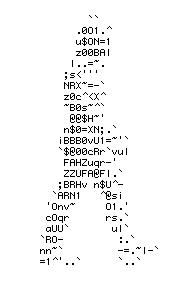Online Journalism and the Future of Newspapers
Online-Chef der Spokesman Review Ken Sands äussert sich in einem Interview über die Zukunft der Zeitungen, die Rolle von online-Journalismus ,....und die Rolle von Blogs:
I love newspapers, and that's why I'm on the APME board. That board is filled primarily with -- sorry, pals -- middle-aged print publication managers who don't seem to know yet what to make of online journalism. Many of them, individually, seem so stressed trying to put out a quality print product in tough economic times that they don't think much about the Web.
I don't intend to be too critical of print editors. In truth, Web editors at many newspapers are in silos away from the print operation and frustratingly distant from print editors who want to collaborate with the Web. My goal is to help both print and online editors understand how much they need each other, and to argue for the elimination of Web silos. In other words, I hope to advance both print AND online journalism by advocating for better collaboration. I know that's a tall order, but you might as well aim high!
I do believe the "amateur" warbloggers showed us professional journalists the power of numbers on the Web. That is, if an army of "reporters" scour the Web to "aggregate" the news, why can't we use our local readers to help us aggregate the news of our communities? How about an army of local bloggers?
The best of their work might even show up in print! At the very least, by tapping into readers as sources, we will be in better touch with our communities and will get better stories.
It might seem ridiculous now, but the electronic edition will eventually become the center of the newsroom universe, with print and television the orbiting planets." Just don't tell my buddies at APME ... they might have coronaries.
....dem ist absolut nichts hinzuzufügen !
Das vollständige Interview: 5 Questions: The Pied Piper of Blogging
Spokane's Ken Sands Predicts You'll Be Doing It Too
[Via: Steve Outing resp. http://www.editorandpublisher.com/ ]
I love newspapers, and that's why I'm on the APME board. That board is filled primarily with -- sorry, pals -- middle-aged print publication managers who don't seem to know yet what to make of online journalism. Many of them, individually, seem so stressed trying to put out a quality print product in tough economic times that they don't think much about the Web.
I don't intend to be too critical of print editors. In truth, Web editors at many newspapers are in silos away from the print operation and frustratingly distant from print editors who want to collaborate with the Web. My goal is to help both print and online editors understand how much they need each other, and to argue for the elimination of Web silos. In other words, I hope to advance both print AND online journalism by advocating for better collaboration. I know that's a tall order, but you might as well aim high!
I do believe the "amateur" warbloggers showed us professional journalists the power of numbers on the Web. That is, if an army of "reporters" scour the Web to "aggregate" the news, why can't we use our local readers to help us aggregate the news of our communities? How about an army of local bloggers?
The best of their work might even show up in print! At the very least, by tapping into readers as sources, we will be in better touch with our communities and will get better stories.
It might seem ridiculous now, but the electronic edition will eventually become the center of the newsroom universe, with print and television the orbiting planets." Just don't tell my buddies at APME ... they might have coronaries.
....dem ist absolut nichts hinzuzufügen !
Das vollständige Interview: 5 Questions: The Pied Piper of Blogging
Spokane's Ken Sands Predicts You'll Be Doing It Too
[Via: Steve Outing resp. http://www.editorandpublisher.com/ ]
Cyberwriter - 6. Aug, 22:44 - online Journalism
5 Kommentare - Kommentar verfassen - 0 Trackbacks
andreas-hamburg - 7. Aug, 16:27
OhMyNews in Südkorea
Zu Thema Einbindung der Leser passt ein Artikel aus der Taz vom 5. August:
Südkoreas Netzzeitung OhMyNews erklärt 26.000 seiner LeserInnen zu Reportern und mischt mit dieser Guerillataktik Medien und Politik auf.
OhMyNews veröffentlicht Artikel von Lesern und zahlt sogar eine Kleinigkeit dafür.
Dass dabei nicht nur Qualität rauskommt, sieht aber auch der Chefredakteur so:
Ein Viertel der Texte ist schlecht. Die werden von uns nicht bearbeitet, aber mit der Bemerkung ins Netz gestellt, dass wir die Haftung dafür ablehnen. Die liegt allein beim Autor. Viele Texte haben einen verleumderischen Ton.
Immerhin haben sie das Monopol der konservativen, regierungstreuen Presse gebrochen.
Südkoreas Netzzeitung OhMyNews erklärt 26.000 seiner LeserInnen zu Reportern und mischt mit dieser Guerillataktik Medien und Politik auf.
OhMyNews veröffentlicht Artikel von Lesern und zahlt sogar eine Kleinigkeit dafür.
Dass dabei nicht nur Qualität rauskommt, sieht aber auch der Chefredakteur so:
Ein Viertel der Texte ist schlecht. Die werden von uns nicht bearbeitet, aber mit der Bemerkung ins Netz gestellt, dass wir die Haftung dafür ablehnen. Die liegt allein beim Autor. Viele Texte haben einen verleumderischen Ton.
Immerhin haben sie das Monopol der konservativen, regierungstreuen Presse gebrochen.
Cyberwriter - 7. Aug, 16:41
Ein Viertel nur?
....da hätte ich jetzt eher gedacht es wären mehr... OhMyNews ist ein sehr interessantes Konzept. Und eBay hat in diesem Sinne noch was ganz anderes in Peto,... :-)
Aber auch http://www.redpaper.com/ testet das "Volk schreibt fürs Volk"-Konzept aus. :-)
Und soeben (Zufälle gibt's) hat die online Journalism Review eine neue Serie zum Thema "Participatory Journalism" publiziert.
* Personal Broadcasting Opens Yet Another Front for Journalists
* Participatory Journalism Puts the Reader in the Driver's Seat
* What is Participatory Journalism?
[Via JD's New Media Musings]
Aber auch http://www.redpaper.com/ testet das "Volk schreibt fürs Volk"-Konzept aus. :-)
Und soeben (Zufälle gibt's) hat die online Journalism Review eine neue Serie zum Thema "Participatory Journalism" publiziert.
* Personal Broadcasting Opens Yet Another Front for Journalists
* Participatory Journalism Puts the Reader in the Driver's Seat
* What is Participatory Journalism?
[Via JD's New Media Musings]
andreas-hamburg - 8. Aug, 12:53
Ebays Idee
Hoffentlich kommt mein Arbeitgeber nicht auch mal auf die Idee, Systemadministrator bei ihm zu sein sei so toll, dass ich noch bezahlen sollte.
Die Versteigerung könnte auch anders herum gehen: Wer macht die Arbeit für das geringste Honorar?
Die Versteigerung könnte auch anders herum gehen: Wer macht die Arbeit für das geringste Honorar?
kensands - 8. Aug, 08:58
English translation?
Excuse my ignorance, but what does:
dem ist absolut nichts hinzuzufügen !
translate into in English?
dem ist absolut nichts hinzuzufügen !
translate into in English?
Cyberwriter - 8. Aug, 10:21
I'm sorry :-)
"There is absolutely nothing to add to it" ... You're absolutely right with that.
PS. Nice to read you here!
PS. Nice to read you here!





















Trackback URL:
https://cyberwriter.twoday.net/STORIES/55085/modTrackback